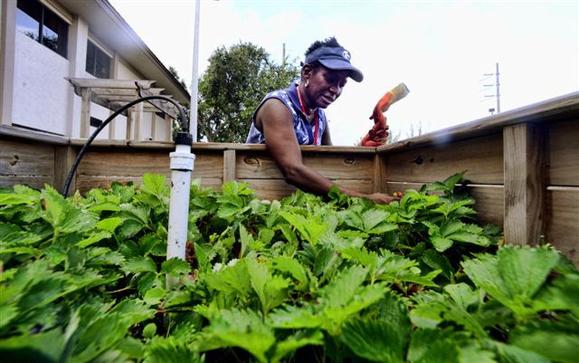Government Grants
Business Grants
Home Owner Programs
Federal Programs
About Us
Agriculture and Food Research Initiative Sustainable Agricultural Systems
Applications to the Agriculture and Food Research Initiative - Sustainable Agricultural Systems (SAS) Request for Applications (RFA) must focus on approaches that promote transformational changes in the U. S. food and agriculture system.
NIFA seeks creative and visionary applications that take a systems approach for projects are expected to significantly improve the supply of affordable, safe, nutritious, and accessible agricultural products, while fostering economic development and rural prosperity in America.
These approaches must demonstrate current needs and anticipate future social, cultural, behavioral, economic, health, and environmental impacts.
Additionally, the outcomes of the work being proposed should result in societal benefits, including promotion of rural prosperity and enhancement of quality of life for all those involved in food and agricultural value chains from production to utilization and consumption.
See AFRI SAS RFA for details.
NIFA seeks creative and visionary applications that take a systems approach for projects are expected to significantly improve the supply of affordable, safe, nutritious, and accessible agricultural products, while fostering economic development and rural prosperity in America.
These approaches must demonstrate current needs and anticipate future social, cultural, behavioral, economic, health, and environmental impacts.
Additionally, the outcomes of the work being proposed should result in societal benefits, including promotion of rural prosperity and enhancement of quality of life for all those involved in food and agricultural value chains from production to utilization and consumption.
See AFRI SAS RFA for details.
Agency: Department of Agriculture
Office: National Institute of Food and Agriculture
Estimated Funding: $80,000,000
Office: National Institute of Food and Agriculture
Estimated Funding: $80,000,000
Obtain Full Opportunity Text:
Agriculture and Food Research Initiative Sustainable Agricultural Systems
Additional Information of Eligibility:
Eligibility Requirements Applicants for the Agriculture and Food Research Initiative (AFRI) Sustainable Agricultural Systems (SAS) RFA must meet all the requirements discussed in this RFA.
Failure to meet the eligibility criteria by the application deadline may result in exclusion from consideration or, preclude NIFA from making an award.
For those new to Federal financial assistance, NIFA’s Grants Overview provides highly recommended information about grants and other resources to help understand the Federal awards process.
1.
Integrated Projects Eligible applicants for Integrated Projects include: a) colleges and universities; b) 1994 Land-Grant Institutions; and c) Hispanic-serving agricultural colleges and universities (see NIFA's Hispanic-Serving Agricultural Colleges and Universities page).
For item a) under Integrated Projects, the terms "college" and "university" mean an educational institution in any state which i) admits as regular students only persons having a certificate of graduation from a school providing secondary education, or the recognized equivalent of such a certificate; ii) is legally authorized within such state to provide a program of education beyond secondary education; iii) provides an educational program for which a bachelor’s degree or any other higher degree is awarded; iv) is a public or other nonprofit institution; and v) is accredited by a nationally recognized accrediting agency or association.
A research foundation maintained by a college or university is eligible to receive an award under this program.
Full Opportunity Web Address:
https://www.nifa.usda.gov/grants/funding-opportunities/agriculture-food-research-initiative-sustainable-agricultural-systems
Contact:
Agency Email Description:
If you have any questions related to preparing application content.
Agency Email:
Date Posted:
2024-02-23
Application Due Date:
Archive Date:
2024-07-06
Social Entrepreneurship
Spotlight
Is Corporate Philanthropy Dead?
Senay Ataselim-Yilmaz, Chief Operating Officer, Turkish Philanthropy Funds, writes that philanthropy often solves the very problems that stems from market failure. Some social issues, however, cannot be tackled by questioning the return on investment.

